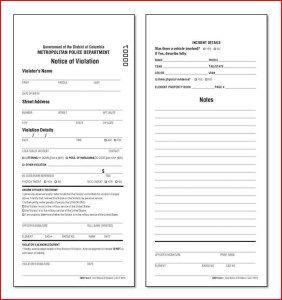Pot Decriminalization Begins Today in DC
What a difference a day makes. Yesterday, if you were caught with one ounce or less of marijuana in Washington, DC, you would have been placed in handcuffs, charged with a crime, and faced up to 180 days in jail. Beginning today, the same action will only get you a $25 civil penalty and the seizure of your stash. Marijuana paraphernalia such as papers, bongs, pipes and one-hitters have also been decriminalized, but will be confiscated as long as they are openly visible to the officer. Possession of more than one ounce of marijuana is still a criminal misdemeanor, carrying a penalty of up to 180 days in jail. Statutes addressing distribution and possession with intent to distribute marijuana also remain unchanged.
While the reduction of marijuana possession in DC from a crime to a civil infraction is the most well-known aspect of the new law that went into effect today, the Marijuana Decriminalization Act of 2014 has several provisions of which DC residents and visitors should be aware. Most importantly, consuming marijuana in public by inhaling, ingesting or simply holding a lit joint or pipe is still a crime punishable by up to 60 days in jail. A public space is defined as a street, alley, park, sidewalk or parking area; a vehicle in one of the aforementioned places; or any place where the public is invited (bars or concert venues, for example).
 Decriminalization also has associated constitutional provisions. Prior to the law going into effect, the police frequently used the smell of marijuana as a justification for searches of cars, homes and people. This practice has always been problematic for the accused because of the difficulty in challenging the presence, or lack thereof, of a smell. Now, the possession, suspected possession, or odor of marijuana is no longer considered a basis to issue a search warrant and can’t be considered reasonable suspicion of a crime (which is often used by the police as the justification for warrantless searches of cars and other private property).
Decriminalization also has associated constitutional provisions. Prior to the law going into effect, the police frequently used the smell of marijuana as a justification for searches of cars, homes and people. This practice has always been problematic for the accused because of the difficulty in challenging the presence, or lack thereof, of a smell. Now, the possession, suspected possession, or odor of marijuana is no longer considered a basis to issue a search warrant and can’t be considered reasonable suspicion of a crime (which is often used by the police as the justification for warrantless searches of cars and other private property).
An exception to these new limitations on searches applies when police officers are investigating drivers who are suspected of being under the influence of alcohol or any drug, including marijuana, while operating a vehicle. It remains to be seen exactly how this provision will be enforced, and whether it will encourage police to begin calling every traffic stop a DUI investigation to get around the law’s search requirements.
Another gaping hole in the statute, one which applies equally in other states that have passed similar decriminalization and legalization laws, is that federal law still considers the possession of marijuana to be a crime. Unlike in other states, however, the District is home to a number of federal police agencies, such as the U.S. Park Police, Secret Service, and Capitol Police, which patrol many parts of the city and can still make arrests under the federal prohibitions. This is important for people to keep in mind while they are on the National Mall, near the White House, or visiting the Capitol building.
The racial disparity in marijuana enforcement is well-documented. Nationally, African-Americans are almost four times as likely to be arrested for marijuana possession compared to whites, even though they use marijuana at similar rates. In Washington, DC, the enforcement gap is even wider. In passing the Marijuana Decriminalization Act, the DC City Council has taken a major step towards addressing this inequity. And by including provisions restricting the police’s ability to justify mass searches, the law further recognizes the extent to which marijuana enforcement has eroded people’s privacy rights with little to no benefit to public safety

